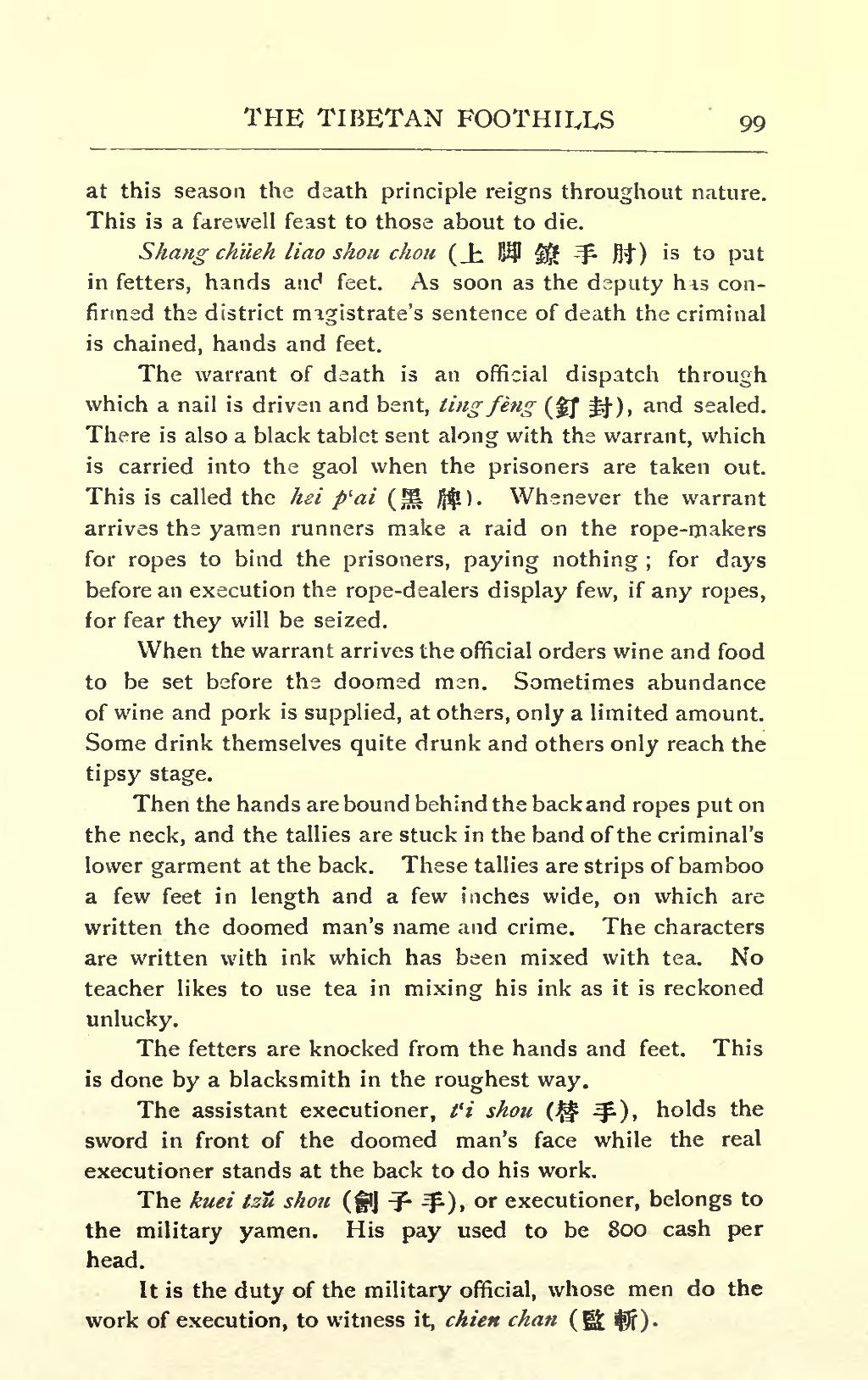at this season the death principle reigns throughout nature. This is a farewell feast to those about to die.
Shang chüeh liao skou chou (上脚鐐手肘) is to put in fetters, hands and feet. As soon as the deputy his confirmed the district magistrate's sentence of death the criminal is chained, hands and feet.
The warrant of death is an official dispatch through which a nail is driven and bent, ting fèng (釘封), and sealed. There is also a black tablet sent along with the warrant, which is carried into the gaol when the prisoners are taken out. This is called the hei p‘ai (黑牌). Whenever the warrant arrives the yamen runners make a raid on the rope-makers for ropes to bind the prisoners, paying nothing; for days before an execution the rope-dealers display few, if any ropes, for fear they will be seized.
When the warrant arrives the official orders wine and food to be set before the doomed men. Sometimes abundance of wine and pork is supplied, at others, only a limited amount. Some drink themselves quite drunk and others only reach the tipsy stage.
Then the hands are bound behind the back and ropes put on the neck, and the tallies are stuck in the band of the criminal's lower garment at the back. These tallies are strips of bamboo a few feet in length and a few inches wide, on which are written the doomed man's name and crime. The characters are written with ink which has been mixed with tea. No teacher likes to use tea in mixing his ink as it is reckoned unlucky.
The fetters are knocked from the hands and feet. This is done by a blacksmith in the roughest way.
The assistant executioner, t‘i shou (替手), holds the sword in front of the doomed man's face while the real executioner stands at the back to do his work.
The kuei tzŭ shou (劊子手), or executioner, belongs to the military yamen. His pay used to be 800 cash per head.
It is the duty of the military official, whose men do the work of execution, to witness it, chien chan (監斬).

